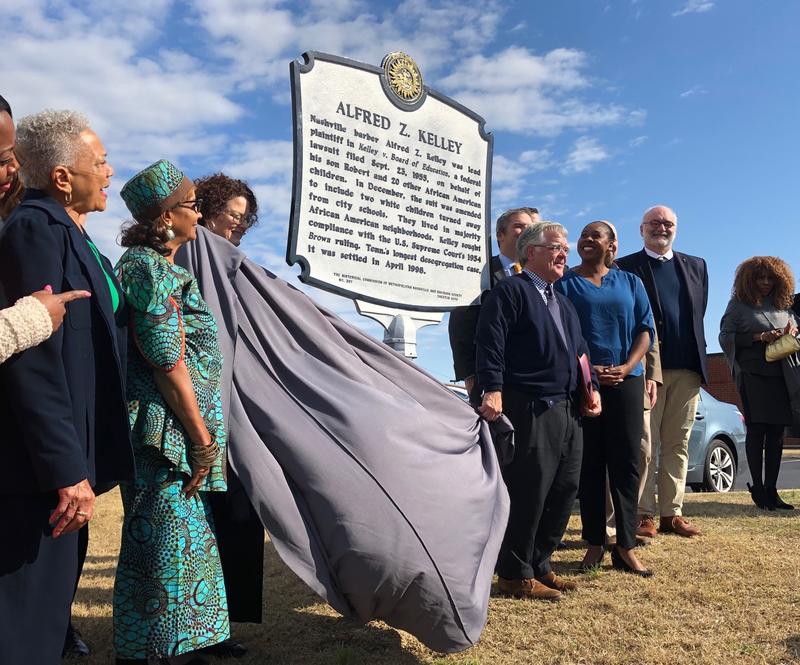
Nashville’s historical commission unveiled a marker celebrating the late civil rights activist, Alfred Z. Kelley, on Tuesday. The plaque, erected at an Antioch elementary school sharing his name, recognizes the man who launched Nashville’s landmark school desegregation case.
In 1955, a year after the Supreme Court ended separate-but-equal education, Kelley, an African American barber, tried to enroll his 14-year-old son, Robert, in East High School, just a few blocks from his house. He was denied because he was black.
Despite desegregation being the law of the land, many Nashville schools were refusing to comply. So Kelley led a class action lawsuit against the city. It went on the be the longest case in Tennessee history, finally settled in 1998.
Kelley’s daughter, Ellen White, says the marker is an important reminder that history is both past and present.
“People need to remember,” White says. “People forget a lot about our past. And how things have changed. But not so much, you know what I am saying?”
The fact is, while the case led to initial gains in school integration, the city quickly began to backslide. Kelley’s original neighborhood of East Nashville is now home to some of the city’s most racially isolated schools.
Still, Kelly’s daughter hopes the marker inspires others to continue the work of her father.


